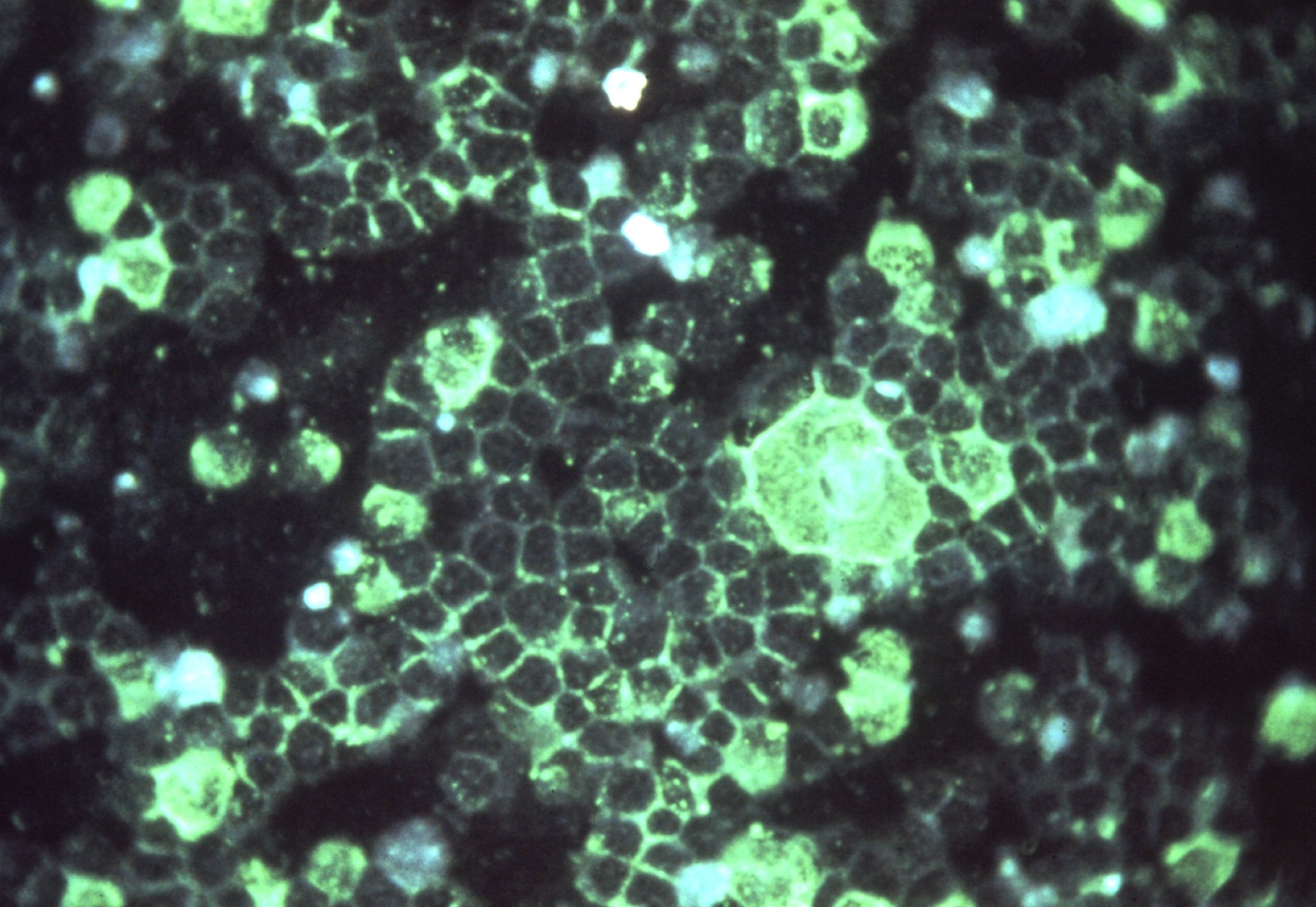
Respiratory syncytial virus infection currently has no FDA-approved treatments, so biotech companies are targeting various viral components to try and find a way to stop it. An Enanta Pharmaceuticals drug that is the furthest along in clinical development against one particular target has just flunked a test in low-risk RSV patients. However, the biotech believes its drug may still help sicker or immunocompromised patients and studies are continuing in such higher-risk groups.
The drug, EDP-938, was being tested in a Phase 2b study enrolling otherwise healthy patients with community-acquired RSV. The drug did not meet the main goal of reducing total symptoms compared to a placebo, Watertown, Massachusetts-based Enanta announced after the market close Wednesday. The drug also missed secondary antiviral goals of the clinical trial.
RSV affects the lungs and causes symptoms that are similar to those of the common cold. In healthy people, those symptoms are mild and the infection usually resolves in after a few days. That could be one reason that the Phase 2b test of Enanta’s drug was not successful, according to Jay Luly, the biotech’s president and CEO.
“Although patients were treated within 48 hours of symptom onset, a key observation in this study was that the viral load and symptoms had already peaked and were declining at the time of the first dose, indicating RSV infection resolves quickly in this otherwise healthy population,” he said in a prepared statement.
Nevertheless, investors did not like these initial results. Enanta’s stock price opened Thursday at $38.02, down 17% from Wednesday’s closing price.

A Deep-dive Into Specialty Pharma
A specialty drug is a class of prescription medications used to treat complex, chronic or rare medical conditions. Although this classification was originally intended to define the treatment of rare, also termed “orphan” diseases, affecting fewer than 200,000 people in the US, more recently, specialty drugs have emerged as the cornerstone of treatment for chronic and complex diseases such as cancer, autoimmune conditions, diabetes, hepatitis C, and HIV/AIDS.
EDP-938 is small molecule designed to block RSV’s N-protein, which is part of a pathway for viral replication. In results reported in 2019 from a Phase 2a challenge study in healthy adults, the drug led to statistically significant measures in RSV viral load, symptoms, and mucus compared to a placebo. Based on those results, the company began a Phase 2b study in non-hospitalized adults with RSV infection. The trial enrolled 81 adults randomly assigned to receive either Enanta’s drug or a placebo for five days. Of those patients, 66—33 in each group—were later confirmed to be RSV positive using PCR testing.
Despite missing the main goal of showing symptom improvement measured in the 14-day follow-up period, Enanta noted that compared to a placebo, there was a trend of patients achieving undetectable levels of RSV RNA that was statistically significant at day five of treatment. The company also noted that the safety of the drug in this latest clinical trial was consistent with earlier tests. Based on those results, research is continuing in higher-risk patient groups.
Enanta said recruitment is ongoing for a Phase 2 placebo-controlled study in hospitalized and non-hospitalized pediatric RSV patients. A separate phase 2b study is also continuing in adult hematopoietic stem cell transplant recipients who have acute RSV infection and symptoms of upper respiratory tract infection. Enanta said both studies are expected to continue into next year. The company also plans to start a third mid-stage study in more high-risk patients: the elderly and those who have asthma, COPD, or congestive heart failure. This Phase 2b study is expected to start by the end of this year.
Other approaches to RSV are going after a different target, the fusion protein that is key to viral entry into cells. The F-protein program furthest along in the clinic belongs to ArkBio, which reported in April that its drug candidate met the main and secondary goals of a pivotal test. The Shanghai-based biotech said it plans to submit an application to China’s regulatory agency in the middle of this year. Meanwhile, U.K.-based ReViral has reached mid-stage testing with its oral F-protein inhibitor, sisunatovir. Last month, Pfizer reached an agreement to acquire ReViral in a deal that could reach up to $525 million, including milestone payments. Re-Viral’s pipeline also has an N-protein inhibitor that has reached early-stage clinical development.
Enanta’s EDP-938 is the most advanced program in the company’s pipeline. The biotech has one commercialized product. Enanta antiviral glecaprevir is one component of the combination drug Mavyret, which AbbVie markets for treating hepatitis C. In RSV, Enanta isn’t putting all of its eggs in the N-protein basket. Another drug candidate, EDP-323, is designed to block RSV’s L protein, which contains enzymes needed for viral replication. Enanta said EDP-323 has shown potency against both the RSV-A and RSV-B strains in lab testing and is not expected to have cross resistance with other classes of drugs, giving it the potential to be used on its own or in combination with other drugs, including EDP-938. The company said a Phase 1 test for EDP-323 is on track to start in the second half of this year.
Public domain image by the Centers for Disease Control and Prevention













